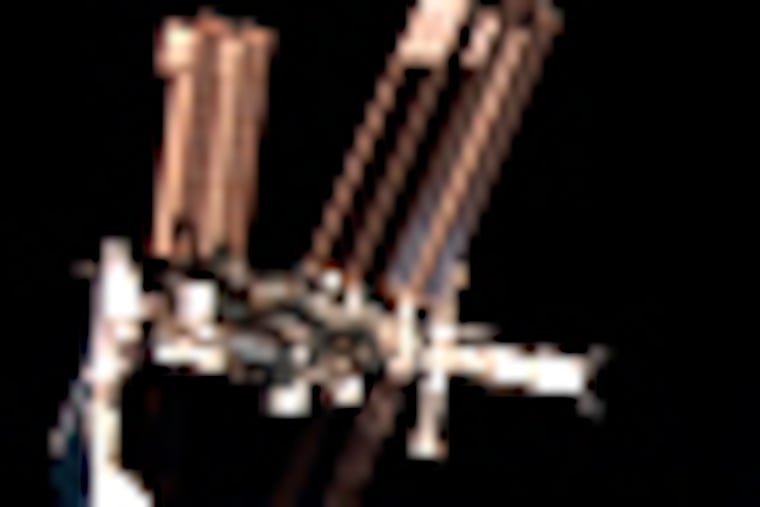Obama misses what exploring space means
Last month, 60 Minutes broadcast a story about job losses in Florida as a result of the dismantling of the human-spaceflight program. Watching the report, I thought of the countless times I had visited the Johnson Space Center in Houston as a member of Congress.

Last month, 60 Minutes broadcast a story about job losses in Florida as a result of the dismantling of the human-spaceflight program. Watching the report, I thought of the countless times I had visited the Johnson Space Center in Houston as a member of Congress.
When I toured the facility and met with constituents in the surrounding community, I was always struck by the pride everyone took in the space program — from the janitor sweeping the floor to the tour guide at the visitor center to the flight director at Mission Control. From the engineers to the astronauts, they all spoke proudly about how they had helped put men in space.
Their comments made a tremendous impact on me, and I've never forgotten them. I was humbled by their work and the greater mission their efforts supported.
I was also filled with pride myself. As Americans, we can all find honor in the remarkable achievements of NASA.
The space shuttle was probably the greatest technological advancement the world has seen. Similarly, the International Space Station is an incredible testament to the collaborative global effort that can be undertaken only with the strong, courageous leadership of the United States.
This is why, after seeing the 60 Minutes report, I felt deeply saddened. Then I felt angry.
As one of the space program's former employees told the show, "It doesn't have to be this way. It doesn't have to end this like this."
When I left Congress, there was a plan in place for the future of the space program. Following the shuttle's retirement, America would embark on a bold mission to explore the moon and, ultimately, Mars. But the Obama administration threw away the plan — and the $9 billion investment already made.
This administration's failure to understand the importance of human spaceflight is mind-numbing. The issue isn't just jobs — although, of course, in this economy, every job is precious. It isn't just the heartbreaking stories of businesses and communities that have been destroyed. And it isn't just about being No. 1 in the world, or the national pride that comes with knowing this country is still capable of greatness.
I would even go so far as to say it isn't only about national security or the need to maintain our industrial base, knowing full well that China, Russia, and others are advancing in the space arena at a rapid pace — though, of course, our national defense should be an important consideration.
But it's much more intrinsic than all that. What's really at stake in space is the human race's need to explore. There is something innate in humanity that calls us to take on unfathomable risks in search of discovery.
I believe that our Creator planted within us an insatiable curiosity, intelligence, ingenuity, and ability to dream for a reason: We simply were not meant to sit still and contemplate the universe around us. We are called to explore it.
And as we do, the other pieces fall into place — national security, inspiration of young people, a healthier economy, technological advancement, and global leadership in space.
Not mentioned in the 60 Minutes report was the work going on in Houston, Florida's Space Coast, and Huntsville, Ala., to develop a capsule and heavy-lift rocket capability to gain access to deep space. Maybe it wasn't mentioned because the administration is still trying to thwart those activities. Thanks to Congress, though, the seeds are in place for this incredible venture, and I pray that our representatives will stay the course.
There is something in our very chemistry that calls us to be a world of explorers. Let's hope it survives the Obama administration.